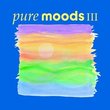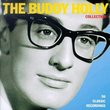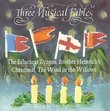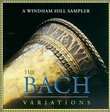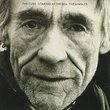| All Artists: Tchaikovsky, Eugene Ormandy, Colonel D. Keith Feltham, Philadelphia Orchestra, Mormon Tabernacle Choir, Valley Forge Military Academy Band Title: Tchaikovsky: Symphony No. 4 / 1812 Overture / Marche Slave - Essential Classics Members Wishing: 0 Total Copies: 0 Label: Sony Release Date: 8/6/2002 Genre: Classical Style: Symphonies Number of Discs: 1 SwapaCD Credits: 1 UPC: 696998995727 |
Search - Tchaikovsky, Eugene Ormandy, Colonel D. Keith Feltham :: Tchaikovsky: Symphony No. 4 / 1812 Overture / Marche Slave - Essential Classics
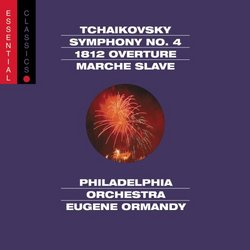 | Tchaikovsky, Eugene Ormandy, Colonel D. Keith Feltham Tchaikovsky: Symphony No. 4 / 1812 Overture / Marche Slave - Essential Classics Genre: Classical
|
Larger Image |
CD DetailsSimilarly Requested CDs
|
CD Reviews"The Philadelphia Sound" in all its glory John Grabowski | USA | 12/07/2003 (4 out of 5 stars) "You get pretty much what you expect with this album, if you know anything about Eugene Ormandy and the Philadelphia Orchestra's legacy. Strings are rich and smooth. Winds have that woody "Old World" sound and vibrato. Brass and percussion are restrained.The Fourth Symphony gets the treatment in moderate tempi and dynamics; volume tends to stay in the mf range and never falls below p or goes above f. Accents are softened. For a radical contrast (and, in all honesty, a better account of the symphony) you should check out Mravinsky's account on DG: he finds more profundity than Ormandy, although the Philadelphias are more polished.Ormandy doesn't quite find the pathos in the work that others do, and his is more emotion recollected in (relative) tranquility. This is not to say the performance is dull, but it is not white-hot, like Bernstein's, or melodramatic, like Mravinsky's, or steely, like Monteaux's. A little annoyingly, Ormandy does not observe the considerably detailed dynamic markings in the score. (This was a common fault of his; he was never obsessed with detail and tended to be concerned with the overall sheen, the "big picture" or perhaps more accurately, "big sound.")I can't really review the 1812 Overture, because I hate it, so I'll leave you to other Amazon reviewers for an evaluation of that. (Seems to me, though, that the Philly under EO might be a little too "rounded" and "smooth" to do that work justice.) As for the Marche Slave, while this one is good, the definitive reading of that work remains Leopold Stokowski (Ormandy's predecessor in Philly!) and the London Symphony Orchestra, recorded in 1969 for London Records. If you can find that recording, which also has a stunning Firebird Suite and a fun Night on Bald Mountain, grab it. The piece on this disc is nice filler." You'll get what you pay for rhymeswithpellet | Boston, MA | 06/05/2006 (3 out of 5 stars) "I was suckered into this recording by the rather cheap price, thinking that Ormandy would work his magic with the Philadelphia Orchestra. Ormandy does take a very moderate interpretation, both in terms of tempo and dynamic, which I thought to be perfectly acceptable for Tchaikovsky. However, I did not find this to be a particularly riviting performance of any of the works, for two reasons.
First, intonation is a consistant problem throughout the disk, especially in the brass instruments. The begining of the 1812 Overture is particularly sloppy in the choir, both on intonation, as well as rhythmic precision. Second, the style is a bit 'un-Russian'. Many of the notes that (I believe) should be played as long as possible, are clipped off, and played staccato (separated, short). For example in the opening fanfare of the Fourth Symphony, the first five notes are played so separated, it sounds weak. The bottom line: You can get better recordings. I would take Mr. Grabowski's advice of getting the Mravinsky recording or you might want to check out Karajan's recording with the Berlin Philharmonic." |

 Track Listings (6) - Disc #1
Track Listings (6) - Disc #1